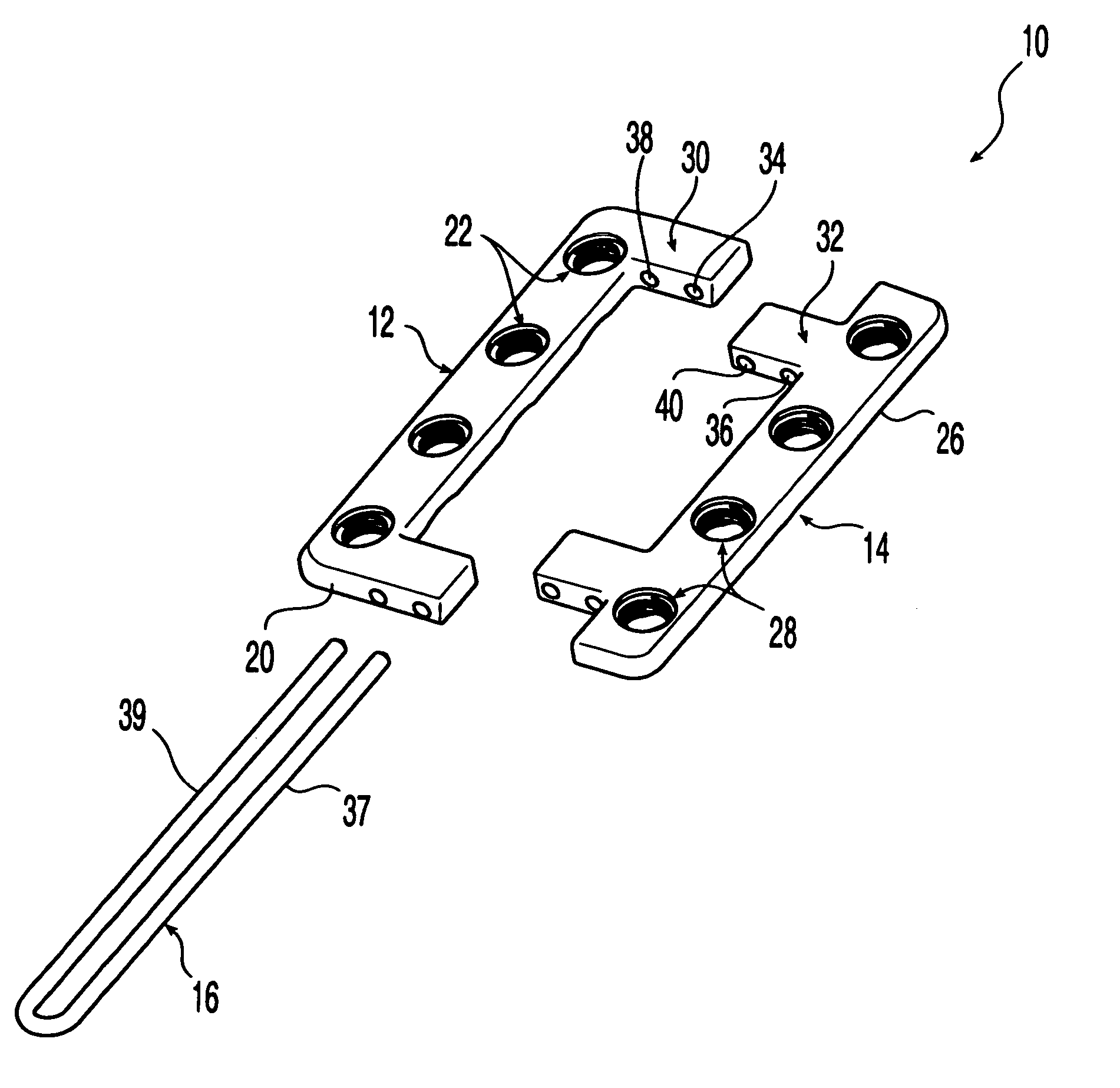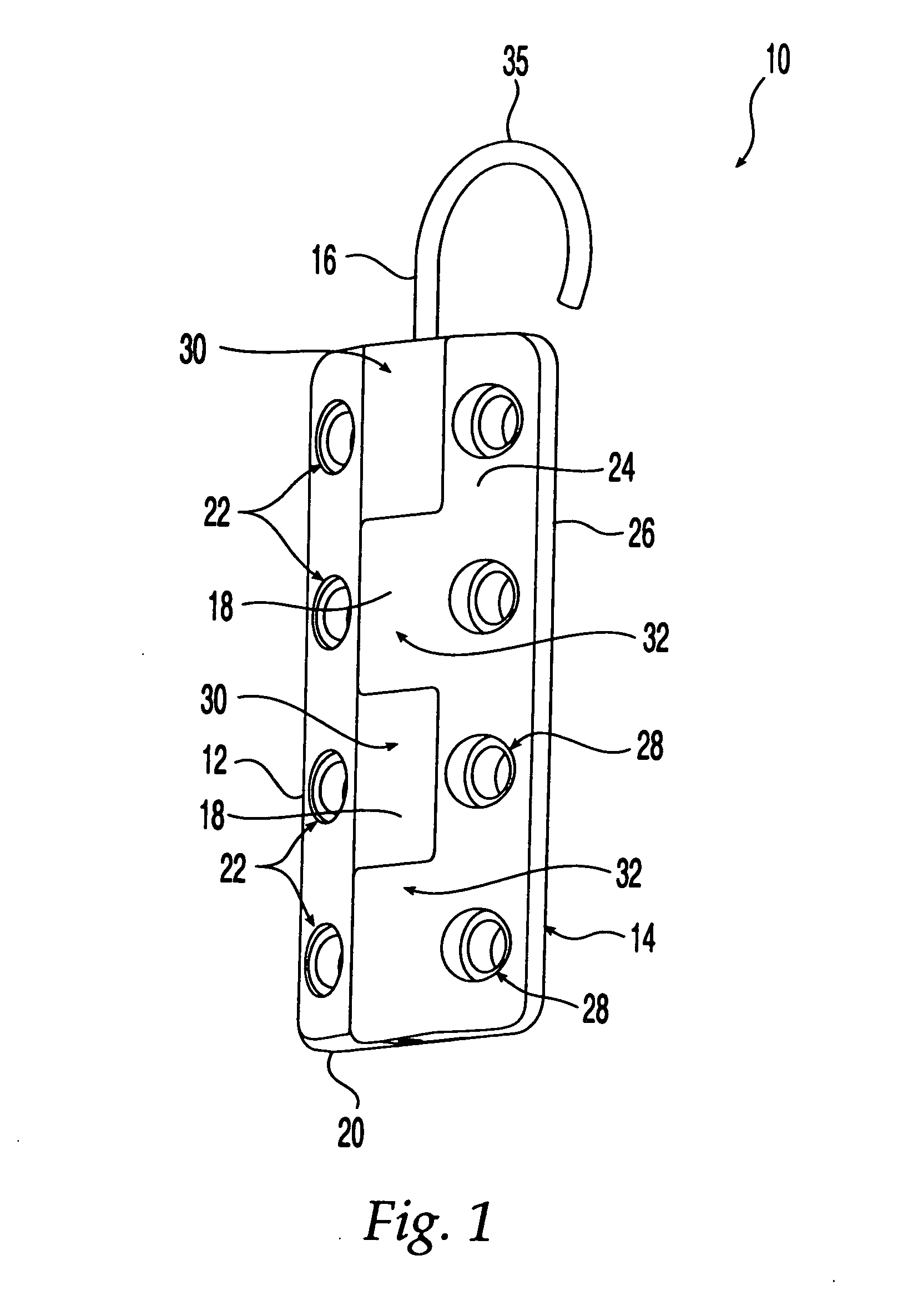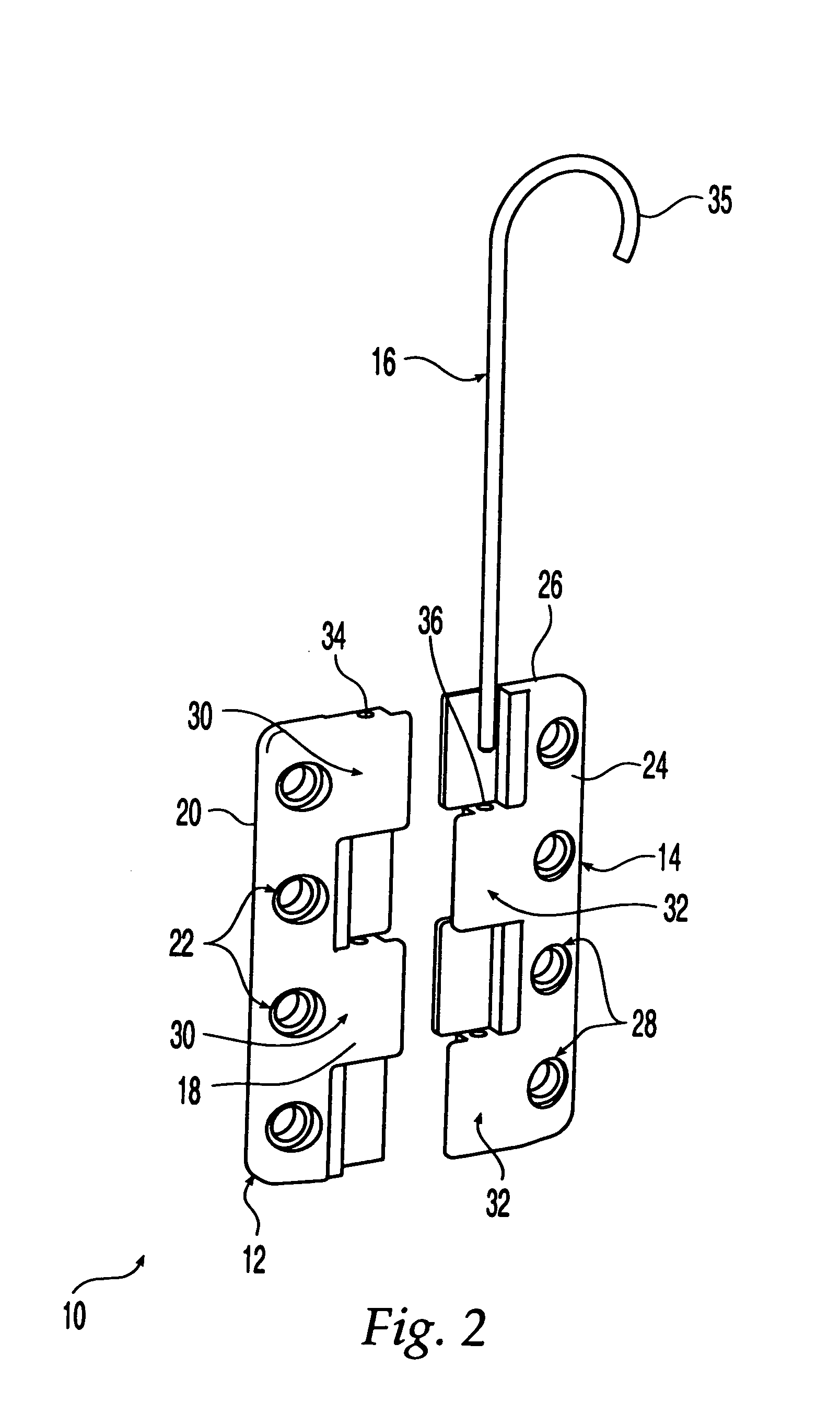Sternum fixation device
a fixation device and sternum technology, applied in the field of surgical devices, can solve the problems of sharp ends that can pierce through the surgeon's gloves or fingers, easy to break steel wires, and difficult to maneuver and place around the sternum, and achieve the effect of increasing the pull-out resistance of the fastener
- Summary
- Abstract
- Description
- Claims
- Application Information
AI Technical Summary
Benefits of technology
Problems solved by technology
Method used
Image
Examples
Embodiment Construction
[0029]FIGS. 1 and 2 show a first illustrative embodiment of a sternum fixation device according to the present invention, shown as sternum fixation device 10. Sternum fixation device 10 includes first and second mating plates 12, 14 attached to one another by a release member 16. First plate 12 and second plate 14 may be used to reapproximate, or secure together, two or more parts of a sternum by attaching each plate to a part of the sternum. Sternum fixation device 10 may be constructed from any suitable bio-compatible material including, but not limited to, bioresorbable materials, radio-translucent materials, allograft materials, stainless steel and titanium
[0030] First plate 12 includes an upper surface 18 and a sternum-contacting surface 20, and a first attachment member 22 for attachment to the sternum. First attachment member 22 is shown as a plurality of threaded holes that are configured to receive a threaded head portion 44 of a fastener, such as a bone screw 42, shown in...
PUM
 Login to View More
Login to View More Abstract
Description
Claims
Application Information
 Login to View More
Login to View More - R&D
- Intellectual Property
- Life Sciences
- Materials
- Tech Scout
- Unparalleled Data Quality
- Higher Quality Content
- 60% Fewer Hallucinations
Browse by: Latest US Patents, China's latest patents, Technical Efficacy Thesaurus, Application Domain, Technology Topic, Popular Technical Reports.
© 2025 PatSnap. All rights reserved.Legal|Privacy policy|Modern Slavery Act Transparency Statement|Sitemap|About US| Contact US: help@patsnap.com



